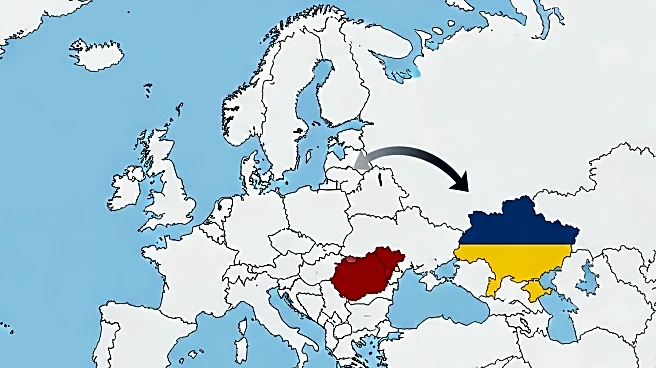What's Happening?
The European Commission is exploring a legal strategy to bypass Hungary's opposition and redirect billions in frozen Russian assets to support Ukraine. This initiative is based on a previous agreement by EU leaders, including Hungary's Viktor Orbán, which stated that Russian assets should remain immobilized until Russia ceases its aggression against Ukraine. The Commission aims to change the sanctions rules from requiring unanimity to a qualified majority, allowing for broader support among EU countries. This move is part of ongoing efforts to financially support Ukraine amidst the ongoing conflict.
Why It's Important?
The Commission's plan to redirect Russian assets to Ukraine represents a significant shift in EU policy, potentially altering the dynamics of international sanctions and financial support for war-torn regions. If successful, this could strengthen Ukraine's position in the conflict and increase pressure on Russia. However, it also risks diplomatic tensions within the EU, particularly with Hungary and other Russia-friendly nations. The outcome of this initiative could set a precedent for future EU actions in similar geopolitical situations.
What's Next?
The proposal requires high-level political agreement among EU member states, which may involve complex negotiations and diplomatic efforts. The Commission's strategy will likely face resistance from Hungary and other nations concerned about legal repercussions from Russia. Monitoring the developments in these discussions will be crucial in understanding the potential impact on EU unity and its approach to international conflicts.
Beyond the Headlines
This situation highlights the legal and ethical complexities of international sanctions and asset redistribution. It raises questions about the balance between national interests and collective EU actions, as well as the long-term implications for EU-Russia relations.









